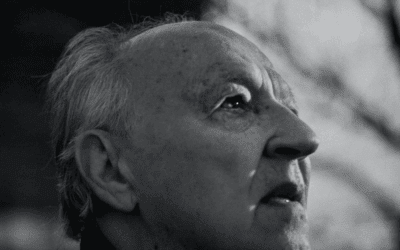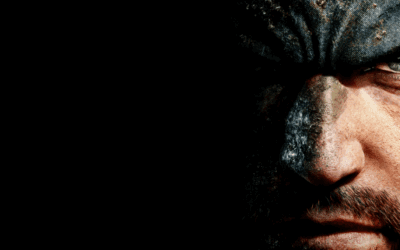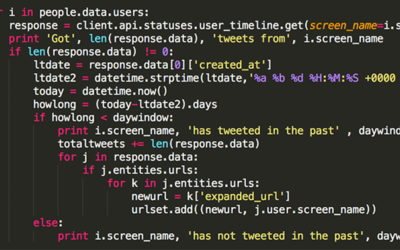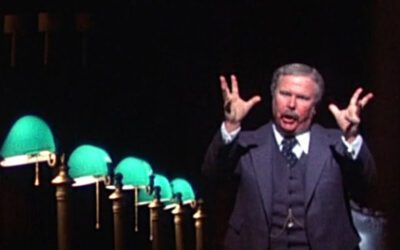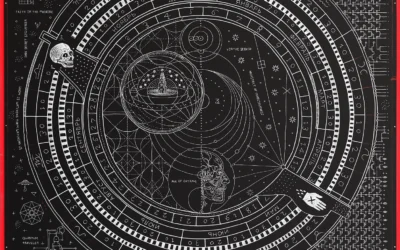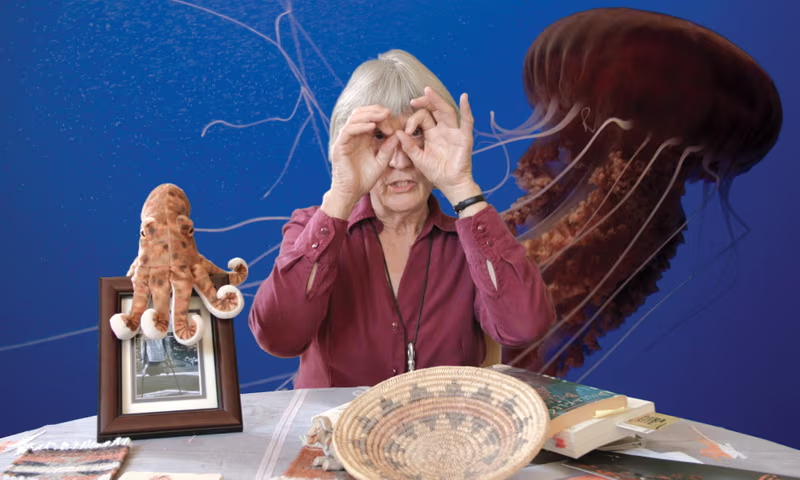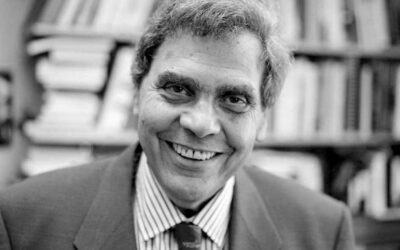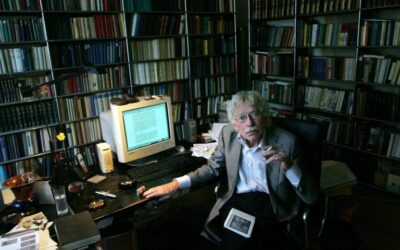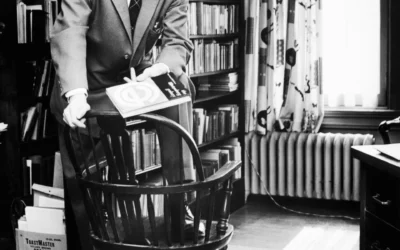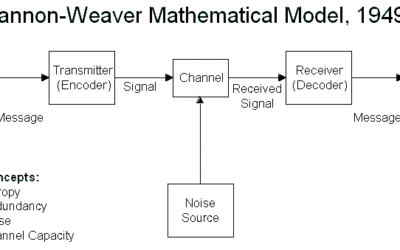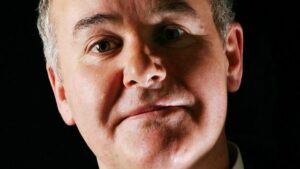In the summer of 2005, a virtual plague swept through the digital kingdom of Azeroth. Players logged into World of Warcraft to find the streets of major cities carpeted with skeletons. A bug had allowed a deadly in-game disease to escape its intended boundaries, and within hours, the servers devolved into chaos. Some players fled to remote zones. Others intentionally spread the infection for entertainment. Still others tried desperately to heal the sick—inadvertently prolonging the outbreak by keeping contagious...
Psychology of Film and TV: How Media Shapes Mental Health Understanding
Analyzing the Intersection of Entertainment and Psychological Experience
Welcome to Taproot Therapy Collective’s exploration of how film and television influence mental health understanding, from accurate portrayals that reduce stigma to harmful stereotypes that perpetuate misconceptions. Our psychology of film and TV content examines both how media represents psychological conditions and how watching certain content affects viewer mental health and behavior.
What You’ll Find in These Articles
Our film and TV psychology articles analyze character development through psychological lenses, examining how shows like “The Sopranos” or “BoJack Horseman” portray therapy, trauma, and mental health conditions. We explore how different genres affect mood and behavior, from horror’s impact on anxiety to comedy’s role in emotional regulation and social connection.
You’ll discover content on media psychology research showing how screen time affects attention and development, analyses of therapeutic themes in popular entertainment, and examinations of how representation in media influences public attitudes toward mental health treatment. We also explore how therapists use film and TV references to connect with clients and illustrate psychological concepts.
Therapeutic Applications and Media Literacy
These pieces connect media analysis with the therapeutic approaches detailed on our main services page, exploring how understanding media influence enhances treatment effectiveness. From using movie metaphors in therapy to addressing problematic media consumption patterns, our content shows how media literacy supports mental health goals.
We examine how binge-watching behaviors relate to depression and anxiety, how social media comparison affects self-esteem, and how mindful media consumption can support psychological wellbeing and recovery.
Birmingham Media Culture and Regional Perspectives
Our articles often explore how Southern storytelling traditions in film and TV reflect regional mental health themes, examining local media representation and how Birmingham’s diverse community experiences different aspects of media psychology and cultural narrative.
Contact Taproot Therapy Collective: 📍 2025 Shady Crest Dr. Suite 203, Hoover, AL 35216
📞 (205) 598-6471
🌐 www.GetTherapyBirmingham.com
🎧 Podcast: gettherapybirmingham.podbean.com
Discover + Heal + Grow with Taproot Therapy Collective – Birmingham’s resource for understanding how film and television influence psychological experience and mental health understanding.
Finding Beauty in America’s Forgotten Corners: Toby Huss on Photography, Acting, and the Art of Authentic Seeing
Interviews and Case Studies, Psychology Book Reviews and Non Fiction, Psychology of Film and TV, Psychology of Media and Culture
Where Art Meets Life in the American Landscape In an era where social media algorithms and political narratives seem determined to divide us, actor and visual artist Toby Huss offers a radically different perspective on American identity. Through his photography book "American Sugar Gristle" and a career spanning from cult classics like "The Adventures of Pete & Pete" to prestige television like AMC's "Halt and Catch Fire," Huss has cultivated a unique ability to find profound beauty in the most unexpected...
Werner Herzog on Psychotherapy: A Review of Into the Abyss by Werner Herzog
Psychology of Fiction / Flash Fiction / Screenwriting, Psychology of Film and TV, Psychology of Media and Culture
A Review of Into the Abyss by Werner Herzog Trigger Warning: This essay discusses capital punishment, murder, violence, death, and contains descriptions of violent acts including attempted murder. The film and essay examine traumatic events and their psychological impact on individuals and communities. Reader discretion is advised. Werner Herzog operates on the principle that perception is reality, and to criticize the perceiver who is deeply watching based on some outmoded collective objectification is foolish...
The Architecture of Myst: When Worlds Become Real Through Design
Psychology of Fiction / Flash Fiction / Screenwriting, Psychology of Film and TV, Psychology of Media and Culture
An in-depth psychotherapeutic exploration of the Myst series’ architectural language, examining how each Age’s design reflects psychological states from Frank Lloyd Wright-inspired organic architecture to Byzantine constructivism. Discover how the Miller brothers transformed environmental storytelling into therapeutic landscapes where internal worlds become navigable territories.
More Human Than Human: How Blade Runner Saw Our Corporate-Colonized Future
Psychology of Film and TV, Psychology of Media and Culture
In 1982, Ridley Scott released a film that bombed at the box office but succeeded in something far more important: it showed us the future we were already building. Blade Runner wasn't science fiction. It was documentary footage from a tomorrow that capital was constructing in real-time. While audiences puzzled over whether Deckard was a replicant, they missed the more disturbing question: in a world where corporations manufacture consciousness itself, does the distinction between human and product even matter...
Metal Gear Solid and the Metamodern: Oscillating Between Grand Narratives and Impossible Fragmentation
Psychology of Fiction / Flash Fiction / Screenwriting, Psychology of Film and TV, Psychology of Media and Culture
An in-depth analysis of how Hideo Kojima’s Metal Gear Solid series embodies metamodern philosophy through its oscillation between grand narratives and postmodern fragmentation, exploring themes of war, identity, and consciousness while paralleling Thomas Pynchon’s critique of post-WWII American empire.
The Psychology of Metal Gear Solid: War, Identity, and the Prophet in the Machine
Psychology of Film and TV, Psychology of Media and Culture
This article contains mild spoilers from the series. Metal Gear Solid stands as one of gaming's most psychologically complex franchises, not because it tries to be, but because Hideo Kojima possesses an almost preternatural ability to understand the tensions between what we claim to value and the forces that actually drive our society. The series doesn't predict the future so much as it excavates the present, finding in our contemporary anxieties the seeds of tomorrow's crises. Each game functions as a...
The Algorithm’s Dark Psychology: 10 Disturbing Ways Your Mind is Being Hacked
Psychology of Film and TV, Psychology of Media and Culture
The Ghost of Bernays in the Machine In 1929, Edward Bernays orchestrated one of history's most insidious marketing campaigns. Sigmund Freud's nephew didn't just sell cigarettes to women. He weaponized their desire for liberation, transforming toxic smoke into "torches of freedom." By staging a fake feminist protest at New York's Easter Sunday Parade, where hired debutantes lit cigarettes in defiance of social taboos, Bernays proved something disturbing: with the right psychological buttons, you could make people...
How the web 3.0 algorithms use psychology to manipulate you
Psychology of Film and TV, Psychology of Media and Culture
We like to think we're in control of our decisions. That clicking "add to cart" was our choice. That we stayed up until 3 AM scrolling because we wanted to. That we genuinely prefer that brand of detergent. But beneath the surface of our digital lives, sophisticated psychological manipulation operates at a scale and precision that would make Cold War-era mind control experiments look quaint. These aren't conspiracy theories; they're documented techniques deployed billions of times per day, refined by armies of...
The Birth of Consciousness: Jungian Archetypes, Neuroscience, and Anthropology in Neil Gaiman’s Sandman
Dreams and the Unconscious, Jungian Therapy and Depth Psychology, Psychology of Artists, Poets, and Writers, Psychology of Film and TV
Disclaimer: Neil Gaiman, the author of The Sandman, has been accused of serious misconduct. While we do not condone his alleged actions or endorse financially supporting him, his influential work has been significant in the fields of psychology, myth studies, and consciousness exploration. This article examines the themes and ideas in The Sandman comics from an academic perspective. Neil Gaiman's groundbreaking comic book series The Sandman is a rich tapestry of mythology, fantasy, and psychology. On the surface,...
Interview on Photo Essay American Sugar Gristle by Toby Huss
Psychology Book Reviews and Non Fiction, Psychology of Artists, Poets, and Writers, Psychology of Fiction / Flash Fiction / Screenwriting, Psychology of Film and TV
Actor Toby Huss on Art, Trauma, and Finding Beauty in America's Forgotten Places: A Deep Dive into Creative Healing Buy the Book! Get Toby Huss's American Sugar Gristle Now https://www.youtube.com/watch?v=89zo1lyVFbM In a captivating podcast episode, acclaimed actor and artist Toby Huss opens up about the profound connections between creativity, trauma processing, and authentic human connection. Best known for his roles in "Halt and Catch Fire" and "King of the Hill," Huss reveals how his artistic...
Dan Schneider versus Child Psychology: A Cultural Reckoning
Parenting Psychology and Therapy for Parents, Psychology of Film and TV, Psychology of Media and Culture
The Convenient Dismissal In 2018, Nickelodeon "parted ways" with Dan Schneider, their most profitable showrunner of the 2000s and 2010s. The timing was no accident. After decades of turning a blind eye to mounting complaints about his behavior—from verbal abuse to inappropriate content to concerning relationships with child actors—the network finally acted. Not because they suddenly discovered these issues, but because the cultural tide had shifted. The #MeToo movement had exposed Harvey Weinstein, the public was...
Network (1976): The Prophet of Our Algorithmic Age
Psychology of Film and TV, Psychology of Modernism Post Modernism and the Meta Modern, Psychology of Politics
The Film That Saw Our Future In 1976, screenwriter Paddy Chayefsky and director Sidney Lumet released a film so prescient about the coming media landscape that audiences didn't know whether to laugh or cry. Network wasn't just satire—it was prophecy. Nearly fifty years later, we're living in the world it predicted: a reality where algorithms dictate human worth, where outrage is currency, and where every radical movement becomes content to be monetized. The film arrived at a pivotal moment in American culture....
Adam Curtis’s Documentary Films: Emotional Truth Telling Through the Language of Conspiracy Theory
Executive and Physician Burnout, History of Psychotherapy, Psychology of Film and TV, Psychology of Media and Culture
A Guide for Psychotherapists and Cultural Critics Why Psychotherapists Should Watch Adam Curtis For mental health professionals seeking to understand the cultural waters their clients swim in, Adam Curtis's documentaries offer an invaluable lens. His films map the unconscious narratives that shape modern anxiety, alienation, and the collapse of collective meaning-making. Curtis doesn't just document history—he performs a kind of cultural psychoanalysis, revealing the hidden emotional logic that governs how power...
The Dark Reflection: Adam Curtis’s “All Watched Over by Machines of Loving Grace”
Psychology of Film and TV, Psychology of Media and Culture
What is the Point of All Watched over by Machines of Loving Grace I like to think (and the sooner the better!) of a cybernetic meadow where mammals and computers live together in mutually programming harmony like pure water touching clear sky. These opening lines from Richard Brautigan's 1967 poem "All Watched Over by Machines of Loving Grace" paint a seductive picture: a world where nature and technology blend seamlessly, where humans and machines coexist in a kind of symbiotic dance. But beneath the surface of...
The Frame of Mind: How Aspect Ratio Shapes Our Cinematic Experience
Psychology of Film and TV, Psychology of Media and Culture
The Psychology of Aspect Ratio How does aspect ratio tell story and influence emotion? In the realm of cinema, the frame is not just a technical necessity but a powerful psychological tool. The proportions of that frame, known as the aspect ratio, profoundly influence how we as viewers engage with, interpret, and emotionally react to the story unfolding before us. From the nearly square frames of early silent films to the widescreen marvels that dominate multiplexes today, the evolution of aspect ratio parallels...
Donna Haraway : Cyborg Feminism and Technoscience
History of Psychotherapy, Psychology, Psychology of Film and TV, Psychology of Media and Culture
I. Who is Donna Haraway Donna Haraway (b. 1944) is a prominent American scholar known for her groundbreaking contributions to the fields of science and technology studies, feminist theory, and cultural studies. Haraway's interdisciplinary approach, which draws from biology, philosophy, critical theory, and the history of science, has reshaped contemporary understandings of the complex relationships between humans, animals, and machines. Her influential works, such as "A Cyborg Manifesto" (1985) and "Simians,...
Neil Postman: Media Critic and Cultural Theorist
Psychology, Psychology of Film and TV, Psychology of Media and Culture, Psychotherapy Biographies: Historical Figures in the History of Psychology
Who Was Neil Postman? Neil Postman (1931-2003) was an American media theorist, cultural critic, and educator whose work profoundly influenced our understanding of the relationship between media, technology, and culture. His incisive critiques of television, education, and the information age continue to resonate in today's digital landscape. This paper explores Postman's life, key ideas, and enduring legacy, examining the relevance of his thought to fields such as psychology, education, and media studies. II....
Friedrich Kittler: Theorist of Media and Technology
Anthropology and Evolutionary Psychology for Therapy, Metamodernism and Deconstruction, Psychology, Psychology of Film and TV, Psychology of Media and Culture, Psychotherapy Biographies: Historical Figures in the History of Psychology
Friedrich Kittler: Digital Theory I. Who was Friedrich Kittler Friedrich Kittler (1943-2011) was a German literary scholar, media theorist, and cultural historian who made significant contributions to the fields of media studies, discourse analysis, and the history of technology. Kittler's work, which draws on a wide range of disciplines including literature, philosophy, psychoanalysis, and information theory, offers a provocative and influential perspective on the ways in which media technologies shape human...
Lev Manovich: Pioneering Theorist of New Media
Psychology, Psychology of Film and TV, Psychology of Media and Culture, Psychotherapy Biographies: Historical Figures in the History of Psychology
Who is Lev Manovich? Lev Manovich is a pioneering theorist of new media, whose groundbreaking work has shaped the field of digital culture and media studies. Born in Moscow in 1960, Manovich's intellectual journey spans computer science, visual arts, media theory, and cultural analytics. His seminal book, "The Language of New Media" (2001), laid the foundation for understanding the unique characteristics and affordances of digital media, and their profound impact on contemporary culture and society. Biography of...
Marshall McLuhan: The Medium is the Message
Metamodernism and Deconstruction, Psychology of Fiction / Flash Fiction / Screenwriting, Psychology of Film and TV, Psychology of Media and Culture, Psychotherapy Biographies: Historical Figures in the History of Psychology
Who was Marshall McLuhan? Marshall McLuhan, a Canadian philosopher, professor, and public intellectual, stands as one of the most influential figures in media theory and cultural studies of the 20th century. His work, characterized by its prescient insights into the nature of media and its effects on human consciousness and society, continues to resonate in our increasingly digital and interconnected world. This paper seeks to explore McLuhan's life, ideas, and enduring legacy, situating his thought within the...
Claude Shannon and Warren Weaver: Architects of Information Theory
Philosophy for Therapists, Psychology of Film and TV, Psychology of Media and Culture, Psychotherapy Biographies: Historical Figures in the History of Psychology
I. What is the Shannon Weaver Model Claude Shannon (1916-2001) and Warren Weaver (1894-1978) were two American mathematicians and engineers whose collaborative work laid the foundation for modern information theory. Their groundbreaking research in the mid-20th century revolutionized our understanding of communication, paving the way for the digital age and profoundly influencing fields ranging from computer science and cryptography to linguistics and psychology. This paper explores the lives and ideas of Claude...
The “Lost World” of Miyazaki’s Masterpiece
Interviews and Case Studies, Phenomenology and Existential Psychology, Psychology, Psychology of Buildings and Architecture, Psychology of Film and TV, Psychology of Media and Culture, Symbolism and Meaning in Psychotherapy
*This review contains spoilers for the film The Boy and the Heron What is The Boy and the Heron trying to tell us? To escape from this depressing situation, they often find themselves wishing they could live in a world of their own - a world they can say is truly theirs, a world unknown even to their parents. To young people, anime is something they incorporate into this private world. I often refer to this feeling as one yearning for a lost world. It's a sense that although you may currently be living in a world...
Adam Curtis: One of the most prophetic artists of the decade is not an artist.
Who or What is Adam Curtis? Journalist or Artist? Adam Curtis is a renowned British documentary filmmaker. His films, which often resemble thesis-less art films, delve deep into complex societal, political, and historical issues. Despite the artistic nature of his work, Curtis maintains that he is a journalist, not an artist. Adam Curtis's documentaries are renowned for their distinct style, which creates a mesmerizing and thought-provoking experience for the viewer. His films are characterized by a...




